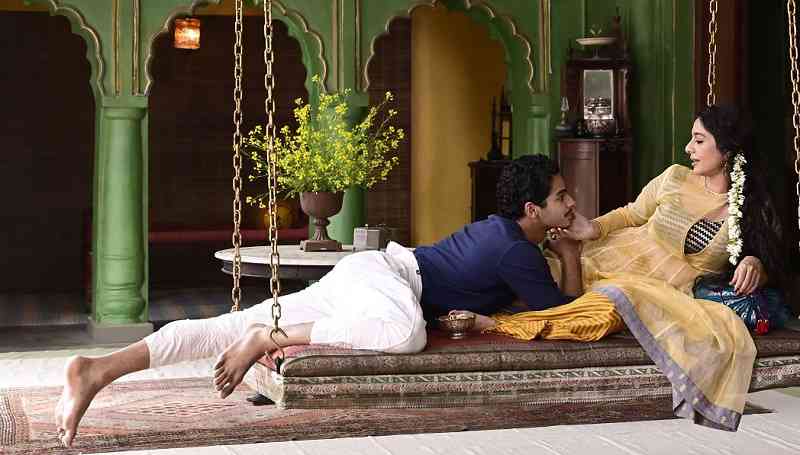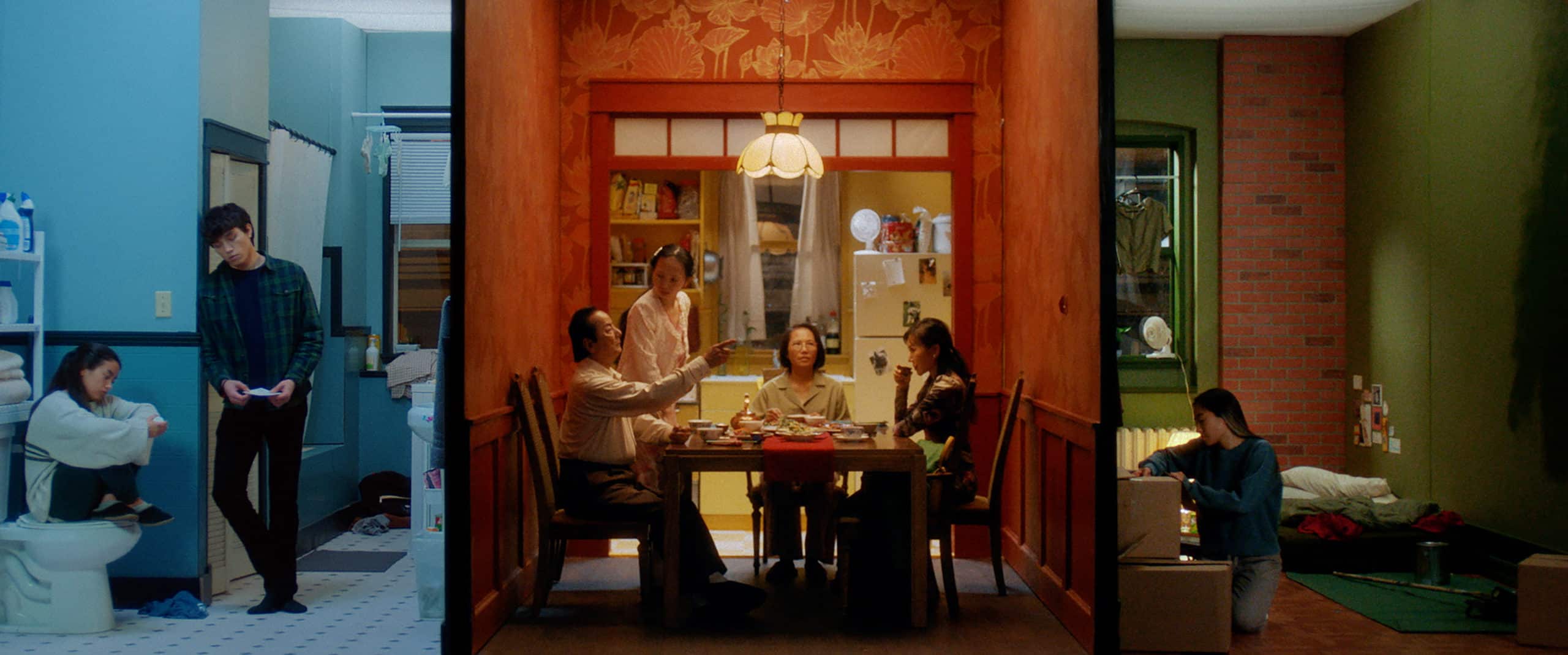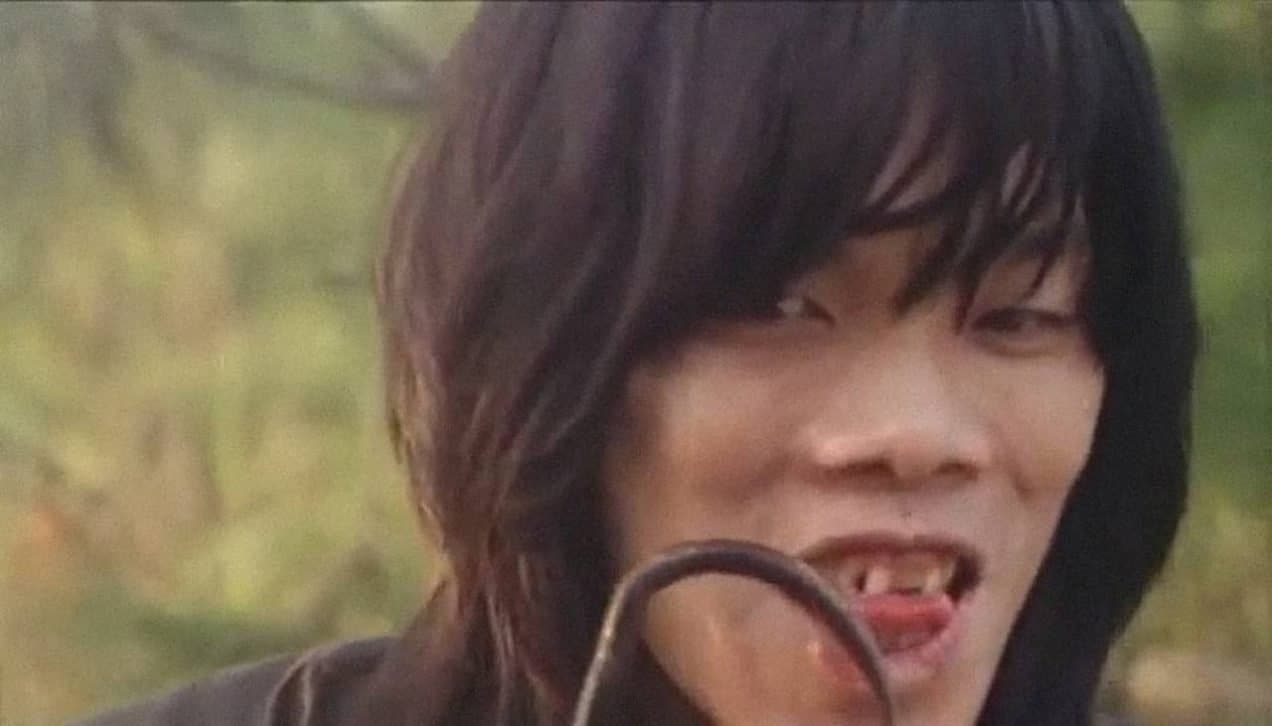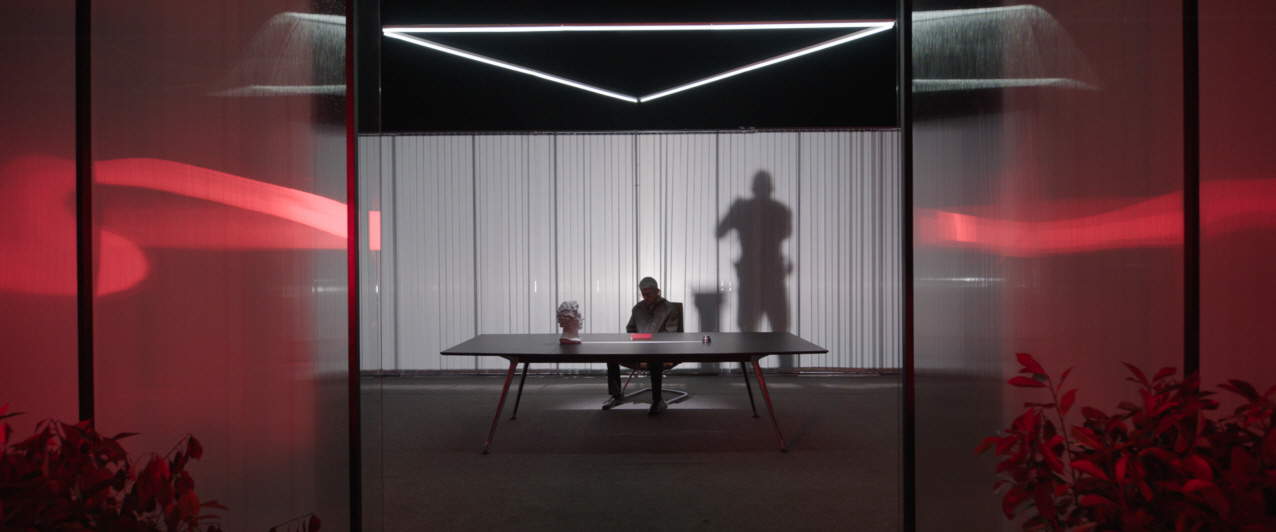Mira Nair's „Salaam Bombay” over the years haven't lost any of its intensity. The story was full of rage and sincerity impossible to achieve by the “Slumdog Millionaire” crafted by the Western director. This makes “Suitable Boy” even more disappointing–as the series seems closer to Boyle's world-famous flick than Nair's own works.
The main problem lies in the target. Although it is an adaptation of a novel of an Indian writer, directed by an Indian (Indian-American to be precise) maker and with an Indian-only ensemble cast, it appears as a beautifully-packed, oriental-scenting commodity from a colonial store. With a script by Briton Andrew Davis, its offer of postcard views of ghats, Holi celebrations, and mischievous monkeys, combined with eclectic sounds of sitar (composed by Alexa Heffes and a virtuoso Anoushka Shankar) it is an oriental treat for Western audience.
The series comes with some fulfilling elements, like impressive sets and costume designs, picturesque cinematography or some interesting social threads. Unfamiliarity with the novel on which it is based also helps to enjoy it. When you are not expecting the rich, multilayered, and epic portrayal of a society grasping its newly-gained freedom which Vikram Seth painted, and romance peripeteia will be just enough – then go for it. Mira Nair puts the focus on a romantic equivalent of whodunit, where we don't wait for the answer “Who killed?,” but “Whom the girl will marry?.”
The story is set, like in the book, in the 50s, and placed in various locations like fictional Benares-inspired Brahmapur, dynamically growing Kolkata or a number of rural areas. There are three candidates for the suitable boy, representing different attitudes (romanticism, pragmatism, creativity) and different social classes. There's middle-class mum (Mahira Kakkar) vowing her daughter she'll find her a proper candidate for a husband. The girl is Lata (debutant Tanya Maniktala), an English literature student. Marriage is currently not on her mind… at least until she meets Kabir (Danesh Razvi), who sends her heart rocketing. However, Kabir's Muslim background complicates the prospects of a possible union.
The script, hurriedly condensing 1000+ pages to 6 episodes, tells the story of four families. Caution, it's complicated. There are Mehras from Brahmapur (Lata, her mother and sister Savita) and Kapoors (related to Mehras through Savita's marriage with Pran, Kapoor's eldest son). There's Nawab of Baitar (Kapoor's friend) and finally, the Chatterjee family from Kolkata (Arun, the eldest brother of Lata and Savita is married to Meenakshi Chatterjee).
The head of the Kapoor family, Mahesh (Ram Kapoor), is a seasoned politician (Congress party member), who plans to run for the very first elections in independent India. His youngest son, Maan (Ishaan Khatter), causes a constant nuisance, courtesy of his impulsive and chimerical character and has no clue what to do with his life. However, he easily gets away with youthful indiscretions as his boyish charm comes to the rescue. Opposites attract, so he's friends with serious Firoz (Shubham Saraf), Nawab's son, and a promising lawyer.
The Chatterjees are an eccentric and wealthy family, whose lifestyle sometimes shocks moderately conservative Mehras. Amit Chatterjee (Mikhail Sen), a poet and Meenakshi's brother, will become the second Lata's candidate. Haresh (Namit Das), building a career in a rapidly developing footwear industry, will be the 3rd. You can place your bets on who will be the lucky winner.
There are many more heroes in the series, like ambitious opportunist Waris (Ranvir Shorey) or an unlikeable politician played by Vinay Pathak. We'll find Rasika Dugal, Vijay Verma, and Vijay Raaz among the supporting cast. So as one may expect, in the lush jungle of characters, the narrative becomes rushed and sketchy, and protagonists don't get enough screen time to fully develop. Also, Lata's emotional dilemmas are far less interesting than the socio-political issues, which are ignorantly pushed into the background.
Seth's novel was published in 90's, when the aftermaths of Babri's mosque demolition and Hindu-Muslim communal riots were still sounding loud. Thus, post-Partition chaos and concerns resonated with the “current” situation. In the series, social tensions are just slightly brushed as if the creators didn't want to hurt the audience's good mood. Therefore, shallow idyllic images from times gone by, shot in an obligatory soft and warm lightning, dominate in the show.. The symbolic representation of tensions somehow survived in the Maan-Firoz strained relationship. Their friendship (with a suggestion of something exceeding only friendship) will be put to the test and a dramatic conflict will divide their Hindu-Muslim families.
As we speak of Maan, he unexpectedly becomes the most interesting character in the series. He engages in a turbulent affair with much older courtesan Saeeda Bai (Tabu), and because of this relationship, he will transform from an infatuated youngster to an obsessed-driven and self-destructive man. Ishaan Khatter (Shahid Kapoor's stepbrother) is a promising talent. His Maan is irritating, horridly immature, but you can forgive him a lot. He combines charm with narcissism, sensibility with egoistic ruthlessness, and the actor fluently switches from one extreme emotion to another and is great in showing both guilt and remorse. Tabu as Saeeda emanates with pure class. With her elegant restraint, she provides a perfect counterbalance for Maan.
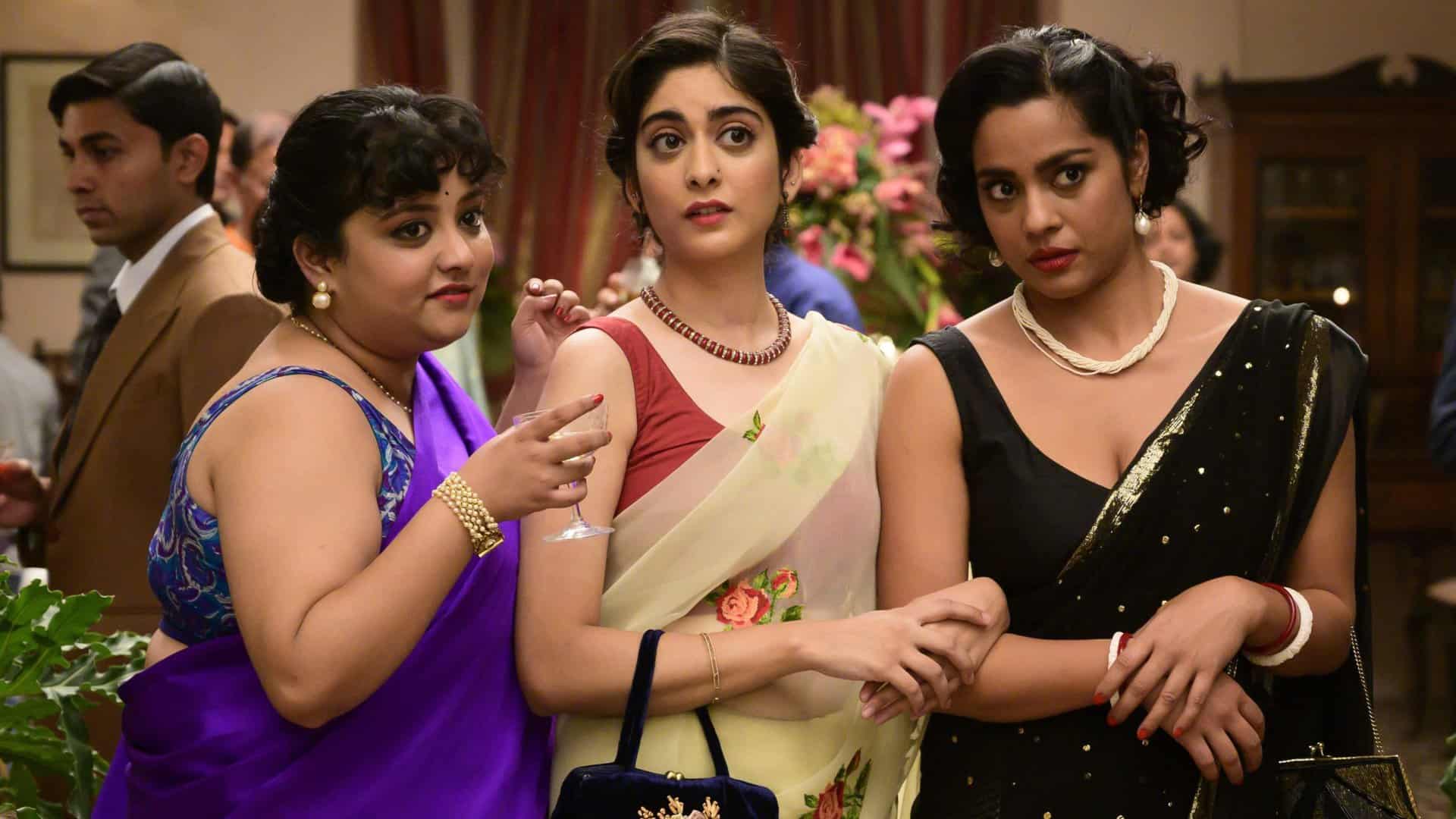
Another interesting thread is politics. Mahesh Kapoor attempts to push the radical Zamindari Bill in the parliament. The bill's purpose was to redistribute the land belonging to zamindars (landowners) to tenants. So in the backdrop, we get zamindar's reluctance to be deprived of privileges, the rise of socialists, and the strengthening of Hindu nationalism. Because of this context, Waris' evolution is one of the most interesting character arcs in the show, but unfortunately, all these sociopolitical contexts are underdeveloped in the unfortunate favor of romance. What is baffling is that the issue of British colonial rule is almost completely omitted like a mysterious tabu. Well, I guess one don't want to hurt the sentiments of those who finance the production. It's like an alternative history in which there are no Englishman in India, and the only trace of the existence of the country are occasional mentions that someone went to London.
Lata's story is enjoyable, owing to the natural talent of debutant Tanya Maniktala, who gives her heroine a soul. We understand her dilemmas and the obstacles she faces. Lata, despite being entangled in a patriarchal male-dominated world, is able to manifest independence and partially break from social conventions.
Vikram Seth's novel is a satire written with a sharp tongue. This was completely lost in the series. There are some comic relief moments, though they seem too grotesque and don't match the serious tone of the entire story. The same problem infects the depiction of some characters. Lata's mother and Meenakshi sister Kuku are the most caricature ones. In addition, Meenakshi seems a heroine woven from lusty femme fatale stereotypes. It's also a pity that Radeep Hooda's potential is wasted on the marginal role of a lover, whose major task is to lavishly present his well-formed torso.
The other flaw of the series is the far too contemporary behavior of the characters, especially when it comes to morality. Some of the scenes were present in the Seth's novel, but in the book, the author was mostly blinking to his contemporary audience. In screen reality, Lata kissing Kabir in public in a temple area causes a huge dissonance. There's also an out-of-place-and-time scene during a party at Chatterjee's when Amit invites Lata to the fiery tango.
But one of the biggest problems of the show lies in the… language. It's mostly English with occasional additions from Urdu, Hindustani, Awadhi, and Bengali. English sounds extremely artificial, especially when the conversation is between the characters who would be very unlikely to use it. Dialogues too often sound banal, and the accents are very confusing (especially for the Indian audience). The rare sequences when the characters speak their languages are definitely more and believable.
Adequate use of language is the reason why the tawaif (courtesans) world represented by Saeeda Bai depiction is so impassive. Tawaifs were not only educated companions and partners in passion, but also the patronesses of art. When Tabu recites her poetic Urdu dialogues or sings ghazals, immersion magic starts and you are beamed up right to her haveli. Saeeda ghazals are performed by the famous ghazal songstress Kavita Seth and Vikram Seth himself prepared the English translation of its lyrics.
Some more pleasing details come from the music, eg. the song that is sung during dinner housed by Chatterjees is Ekla Cholo Re– one of Rabindra sangeet, songs by Tagore. A perfect choice for a Bengali family. Or a number performed –very out of tune – by students after their stage play is Gore Gore O Banke Chhore from Samadh – a Hindi superhit from the 50s, very likely to be cherished by youths of the time.
Interesting historic curios are connected with Haresh, who works for the company modeled upon Bata from Czechia. The world-famous shoe producer had a factory in India since the 30s, then it was followed with some other. That first factory was placed within Kolkata's metropolitan area, and a whole city with the infrastructure for its employees emerged– Batanagar exists till today. For Vikram Seth Bata's nod was a way to honor his father, who worked in the company.
As I mentioned before, the melodramatic and romantic side of the show may give some joy and entertainment, but when a director as significant as Mira Nair makes a series, you expect something more than a well-crafted romantic flick with nice visuals with the most interesting content pushed to a side. There were so many complex stories to tell.


